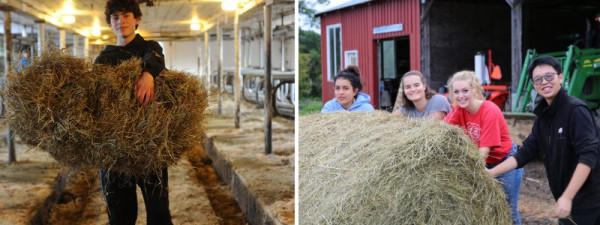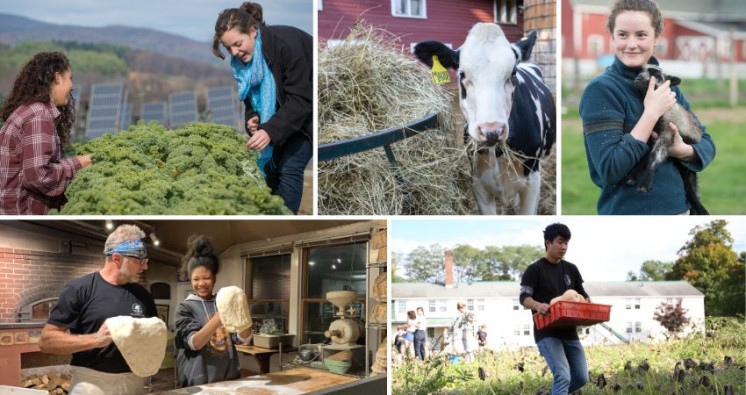
The Putney School is a boarding high school located on a rolling hillside in Putney, Vermont. It was founded in 1936 long before farm-to-school was popularized and continues to be a model for progressive education. It’s a place where young people can disconnect a bit from the complexities of modern, urban life and explore the natural world freely. It is located on a working dairy farm. Two farms were originally purchased to form the campus. The high school education is embedded in the 500 acres of working landscape, on the farm, in the garden, and the kitchen - the ultimate laboratories for experiential learning!
DigInVT spoke with several school staff to learn more. Marty Brennan-Sawyer is the Executive Chef. Katie Morrison is the garden manager and farm assistant. Pete Stickney is the farm manager, history teacher, and girls basketball coach.
Tell us more about the school and its ethos
Students assume a sense of responsibility for what’s around them; they are part of a community. The idea is to produce good citizens that effect positive change in the world. Work is an integral and embedded part of the programs, not a way to get chores done and save money, but part of the whole student experience, values, and mission of the school. Learn more about the amazing work program that empowers students here.
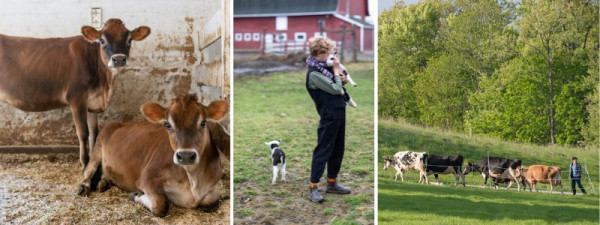
How does the farm fit in?
Elm Lea Farm is a diverse farm and 60 students are involved on the farm each year. It has a dairy herd, 2 acres of vegetable gardens, maple syrup, pigs, turkeys, and sheep. Students have one job each trimester, as well as a graduation requirement of a “land use” activity. They do their jobs 6 days per week for 1.5 hours, including work in the barns, on the wood crew, doing trail maintenance, dishes, and more. Some are very engaged and some are going through the motions, as you might expect with high school students! There is always a small group every year that’s very engaged. Students gravitate to different jobs and some really enjoy the farm. Students lead work crews, which is a big responsibility - a harder task than being captain of the soccer team. Students that become “barn heads” are trusted, looked up to, and take on a lot of leadership. Learn a little more about the farm here.
What is the connection to the kitchen?
“We are the farm, we are the table,” says Marty Brennan-Sawyer. A large majority of what is produced on the farm goes to the school dining hall, the “Kitchen Dining Unit.” Students take part in preparing food for 250-300 people daily. Eighty-seven students a day come through the kitchen, sometimes one at a time or a team of 12-30 (plus there is a full paid staff). This further introduces teens to land-based food ritual and has been a very compelling experience for them.
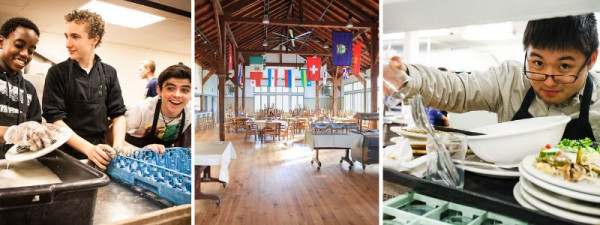
Marty, why do you love your job?
Marty has been the school’s Executive Chef since 1987 and is retiring this year! He says it is the best job in food service for two reasons. He engages both with young people and with the abundant resources on the 500 acre farm. He has been honored to engender in young people a deep understanding and connection and has been doing this since before localvore, farm-to-school/institution were popular terms!
Farm production is focused on the needs of the school first, then the greater community. Marty reported having 1200 pounds of pork in the freezer, they raise wonderful eggs with 150 laying hens, and 80-120 turkeys annually. They harvest and process tomatoes and storage crops. He says the school and farm grow 18-20% of their own food (an annual average) for 3 meals a day, 7 days a week, including Summer Programs.
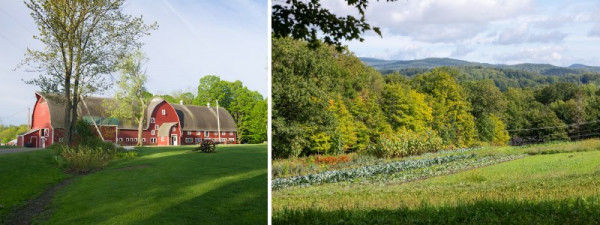
What else is special about the dining program?
The school has a beloved mid-morning snack called “Milk Lunch.” It is a gathering time, a break, and stems from dairy farmers taking a break after the morning milking. The school also has a wood fired bread oven, which is very popular. Many students are game to get up early and start the fire at 6:00am for the daily bread baking! Read more about food at The Putney School.
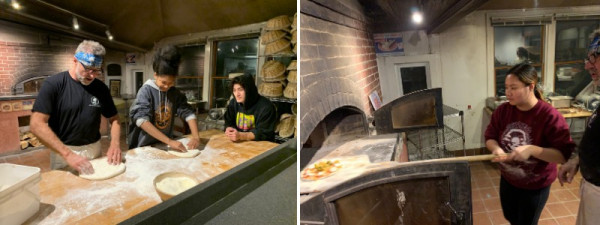
Pete and Katie, why do you love your jobs?
Pete: All of the cows have names and I enjoy the relationships that student build with individual cows and their offspring.
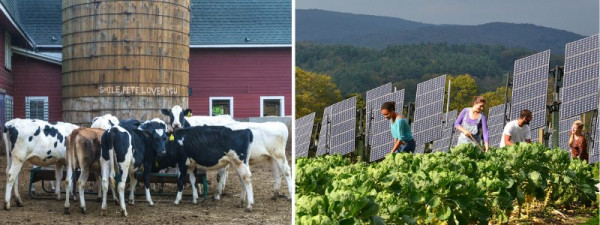
Katie: I love the variety of getting to work with students but also growing and raising food. With teaching and gardening there’s always something new to learn. I also love that my job is integrated into this community, so that working here is more than just a job.
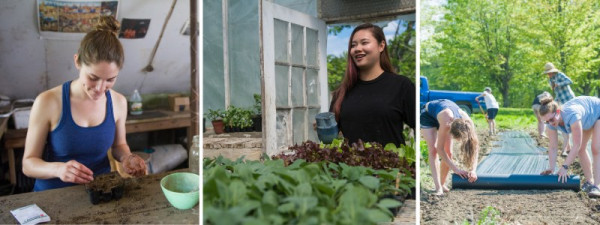
Tell us more about the animals and the cows
The students do the milking for the 38 Holstein and Jersey cows, feed them, and clean the manure gutter. The cows are rotated on lush pasture twice daily during the growing season (a different paddock during the day and night). This system allows the grass in the paddocks to rest, regrow, and avoid overgrazing. The farm staff and students also grow most of their own hay to feed in the winter. The milk is sold to 2 local cheesemakers, Vermont Shepherd and Parish Hill Creamery, as well as Agri-Mark dairy cooperative. The school made a basic cheddar at one point, but has since left it to the experts.
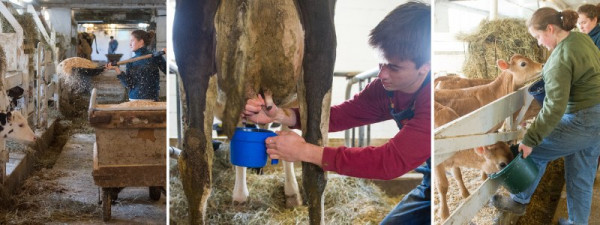
They also have 12 sheep and 4 alpaca, which are part of the fiber program. Homecoming is a parade of animals instead of football!
What else is special about the farm?
There is a sugarbush on the property with 1100-1200 taps. All of the resulting maple syrup goes to the dining hall. The garden grows cut flowers for use around campus - students can pick them for their dorm rooms, they are used for events, by admissions, and in the dining hall. While much is used onsite, vegetables are also harvested and washed for donation to the local food shelf. Students complete a group project, like learning to make hay during haying time! Additionally, there are 15 saddle horses, so riding and horse care is an afternoon activity program. Lastly, the highest honor is to live in one of 5 cabins with a wood stove as a senior! This is a truly unique high school experience, Vermont-style!
